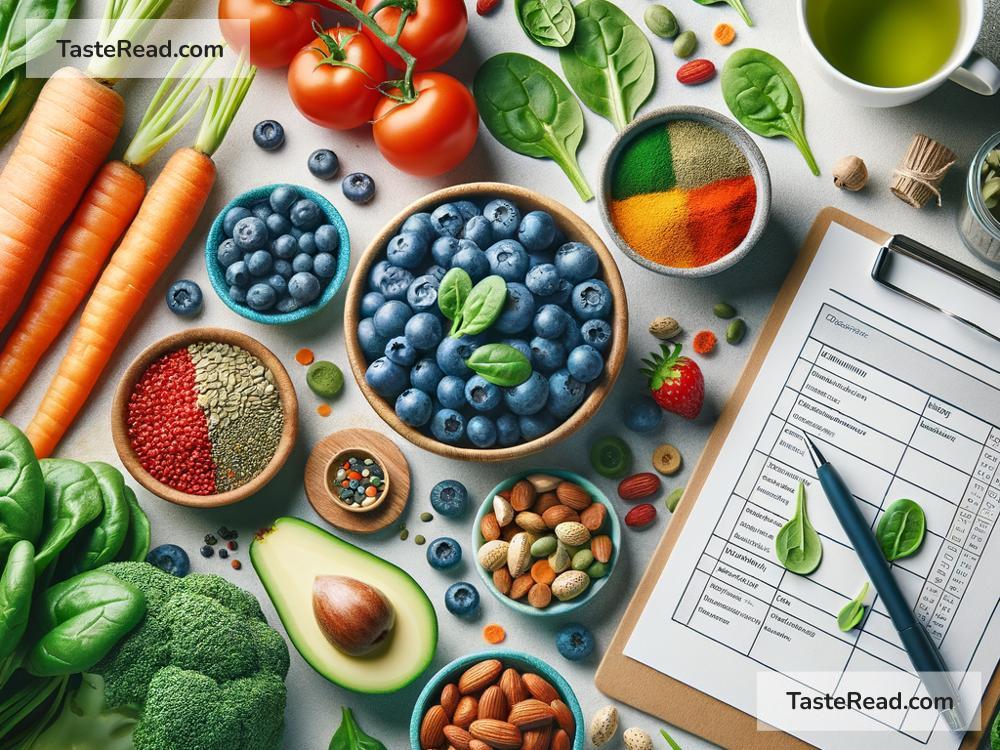Understanding the Role of Dietary Antioxidants in Health
Every time you eat fruits, vegetables, nuts, or any other wholesome food, you’re doing more than just satisfying hunger—you’re providing your body with essential nutrients that help it stay strong and healthy. One such group of nutrients you’re likely consuming without even knowing it is antioxidants. You may have heard of antioxidants mentioned in health food advertisements or supplement labels, but what are they, and why are they so important for good health? Let’s break it down in simple terms.
What Are Dietary Antioxidants?
To understand antioxidants, we first need to take a closer look at how our bodies function. Every day, inside each cell in your body, chemical reactions take place to produce energy. This is a natural and necessary process. However, it also creates harmful molecules called free radicals. Free radicals are unstable because they’re missing electrons, which makes them react with other molecules in your body, potentially causing damage. Think of them as tiny troublemakers that can mess with your cells, proteins, and even DNA.
Over time, this damage caused by free radicals is linked to aging and several chronic diseases, such as heart disease, diabetes, and cancer. That’s where antioxidants step in! Antioxidants are compounds found in foods that help stabilize free radicals, like giving them the missing electrons they need to calm down. By doing this, antioxidants help protect your body from this damage.
Types of Dietary Antioxidants
There are many different kinds of antioxidants, and they’re often found in colorful, fresh foods. Some of the most known dietary antioxidants include:
-
Vitamin C: Found in citrus fruits like oranges and lemons, as well as strawberries, bell peppers, and broccoli. Vitamin C is great for boosting your immune system and protecting your cells from damage.
-
Vitamin E: Found in nuts, seeds, and green leafy vegetables. It helps protect your skin and eyes while also supporting healthy cell functions.
-
Beta-Carotene: Found in carrots, sweet potatoes, and spinach. This antioxidant is converted into vitamin A in your body, which helps maintain healthy vision and immune function.
-
Selenium: Found in Brazil nuts, fish, and eggs. Selenium plays a role in immune health and helps your thyroid gland work properly.
-
Flavonoids: Found in foods like berries, tea, and dark chocolate. These antioxidants are associated with heart health and reducing inflammation.
-
Polyphenols: Found in foods like red wine, olive oil, and coffee. Polyphenols are powerful antioxidants that have been linked to better brain health and overall wellness.
How Do Antioxidants Benefit Your Health?
Antioxidants are like your body’s defense system against the harmful effects of oxidative stress caused by free radicals. Think of oxidative stress as a battle inside your body—if free radicals outnumber your antioxidants, it can lead to cell damage and increase your risk for diseases.
Antioxidants help your body win this battle by neutralizing free radicals. Here are some ways antioxidants contribute to health:
-
Reduces Risk of Chronic Diseases: By preventing cell damage, antioxidants may lower your chances of developing chronic conditions like heart disease, cancer, and diabetes.
-
Supports Skin Health: Free radical damage can contribute to aging and wrinkles. Antioxidants, like vitamin C and E, can help keep your skin looking youthful and healthy.
-
Enhances Brain Function: Some antioxidants, like polyphenols found in berries, help support brain health and may reduce the risk of memory problems as you age.
-
Boosts Immune System: Antioxidants like vitamin C play a big role in keeping your immune system strong and fighting off illnesses.
-
Promotes Heart Health: Flavonoids found in colorful fruits and vegetables are particularly good for your heart, helping to lower blood pressure and reduce inflammation.
Where Can You Find Antioxidants?
The good news is that antioxidants are easy to find in everyday foods. They’re mostly abundant in plant-based foods, such as:
- Fruits: Berries, apples, oranges, grapes, and mangoes.
- Vegetables: Spinach, kale, carrots, tomatoes, and sweet potatoes.
- Nuts and Seeds: Almonds, walnuts, sunflower seeds, and chia seeds.
- Whole Grains: Oats, quinoa, and brown rice.
- Beverages: Green tea, coffee, and even moderate amounts of red wine.
Fresh, colorful foods are typically rich in antioxidants, which is why nutritionists always recommend eating a “rainbow” of fruits and vegetables. The variety ensures that you’re getting a mix of different antioxidants for a full spectrum of health benefits.
Should You Take Antioxidant Supplements?
While antioxidant supplements are available, most experts suggest getting antioxidants naturally from food. Whole foods provide not only antioxidants but also fiber, vitamins, and other nutrients that work together to support your health.
Taking antioxidant supplements in extremely high doses can sometimes do more harm than good. For example, too much vitamin E may increase the risk of bleeding, while excessive beta-carotene in smokers has been linked to a higher risk of lung cancer. It’s always better to speak to a doctor before using supplements.
Final Thoughts
Antioxidants are vital molecules that help protect your body from damage caused by free radicals. Including a variety of antioxidant-rich foods in your diet is one of the best ways to support your overall health and well-being. So, whether it’s a bowl of mixed berries for breakfast, a side of steamed spinach for lunch, or a handful of walnuts for a snack, every small step you take toward eating more antioxidant-rich foods can make a big difference.
Remember, healthy eating doesn’t have to be complicated. Focus on whole, colorful foods, and your body will thank you for it!


